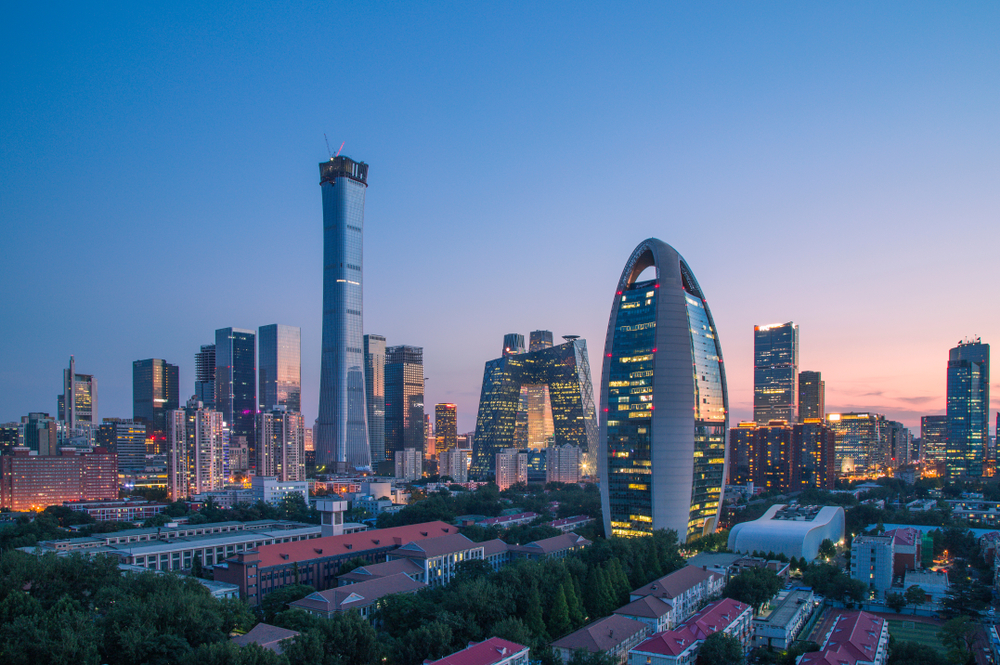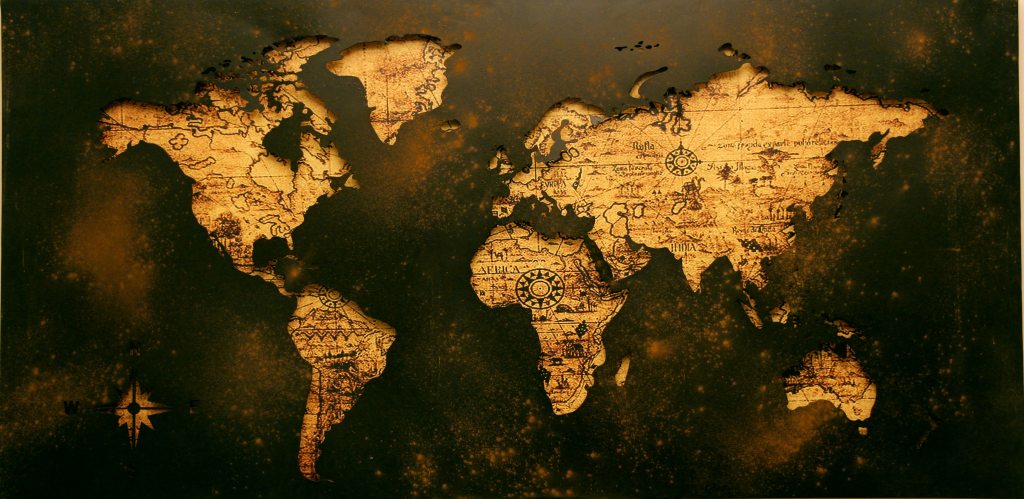BY STEVEN LANGENDONK. Whereas the People’s Republic of China (hereafter China) barely made the evening news before the 2008 Beijing Olympics, it seems to play a leading role in our outlook on the future and our experience of the COVID-19 pandemic. As attention in our societies shifts from crisis management to (political) issues such as economic recovery and international cooperation, China will likely be more present in the rhetoric of our political leaders than ever. That is why it is important to look at how our conceptions of China shape ongoing intra-European and geopolitical power contests.

For many of us, especially the younger generations, China used to be omnipresent in stores as the mystical origin of our toys and daily utensils. It otherwise featured very little in our daily lives until recently, attracting little sustained attention outside the 1989 Tiananmen protests and occasional dust-ups over the Dalai Lama’s visits to European capitals. Whereas Hong Kong grew familiar to us on account of Bruce Lee and Jacky Chan, ‘Red China’ is often still perceived as an alien entity.
To someone researching China’s role in global politics, few contemporary events better illustrate how identity politics shape our political attitudes than those in Hong Kong. The ‘siege’ of the bustling metropole invokes a Manichean contest between ‘good’ democracy and ‘evil’ authoritarianism. The battle in Hong Kong is taken as representative of the war on ‘our’ liberal values around the globe, a war waged by those who ‘do not share our values’, who are fundamentally different from ‘us’. As a result, we pay little attention to other drivers of the protests, such as the immense economic inequality, or to Chinese concerns about foreign intelligence agencies using the region as an operating base.
More globally, the imagined contest between ‘Self’ and ‘Other’ generates a mixed sense of admiration and insecurity. When the Beijing Olympics definitively introduced China into our collective mindscapes (the way we view our reality and what sort of futures we feel remain open to us), the experience was rather muddled. The event not only made us aware of the magnitude of China’s evolution from a mostly agrarian society in the 1970s (with a GDP per capita lower than that of most post-colonial African societies) to a (nascent) economic and political powerhouse. It also highlighted an apparent gap between societal and political values as neighbourhoods were bulldozed to make way for the Olympic park, and Tibetan independence activism was repressed to maintain an image of harmony.
(Continue reading below the photo)

The political aspect of telling stories about others
Despite China’s subsequent rise on the world stage and entry into our regular news cycle, mutual understanding remained limited to a keyhole perspective. There is a constant torrent of reporting on China’s efforts to manage its population via a seemingly Orwellian ‘Social Credit System’, to shape global trade through its Belt and Road Initiative, and its treatment of ethnic minorities (such as the Uighurs). These dynamic and multifaceted issues tend to be presented by politicians and news media as clearly circumscribed threats to what ‘we’ stand for, without considering the whys and how comes behind them. This perspective thus reinforces the coloured lens through which the Self (the ‘Western world’ in this case) has come to understand the Other over the decades or centuries, generating stereotypes on both sides that ultimately lead us to avoid balanced perspectives in favour of easy solutions.
Such prejudices may be rather innocent, such as when a young Chinese boy sitting across from me in a packed sleeper train in 2014 asked his mother if I was a ‘foreign devil’. Personal stories aside, the creation, existence and disappearance of prejudices are also fundamentally political. After Tiananmen for instance, deepening economic ties between China and ‘the West’ were presented (most forcefully by former US President Bill Clinton) as a policy of ‘engagement’, whereby growing economic prosperity would naturally lead the Chinese people to abandon an ‘outdated’ or ‘irrational’ political system and become more like ‘us’. While deeply flawed – one would assume this universal logic also applies to states like Iran – this view remained largely in place until the early 2010s, when China started to express an ambition to move up global economic value chains without reforming politically.
The creation, existence and disappearance of prejudices are also fundamentally political.
The tendency by political leaders and governments on both sides to legitimate policy through narrow and Self-centered images of the Other is the second reason for the keyhole perspective. If anything, the political risks and opportunities associated with the COVID-19 pandemic seem to stimulate it. In the run-up to the US Presidential election, US President Trump and his challenger, Senator Joe Biden, seem intent on a race to the bottom on ‘who is tougher on China’. Trump, in characteristic polarising fashion, equated a vote for Biden as a vote for China, as in ‘it will do anything to stop my re-election’. Comparisons to China’s ‘draconic lockdown’ and ‘Orwellian system of state surveillance’ are also convenient scarecrow arguments for those who seek to expand surveillance of citizens: “at least it won’t be like China!” or “we can learn from China, but we must adapt the technology to our own values”. Meanwhile in China, the state-controlled media portrays ‘Western responses’ to the virus as total failures due to a lack of social cohesion and obedience to government directives.
Let’s talk about geopolitics
At this point, the attentive reader might ask: what do prejudices and stories about China have to do with me? And why should I care about geopolitics? Well, the stories (our) political leaders tell are never simply opportunistic one-offs, even if they are intended as such. They fence off our individual and collective mindscape in terms of what futures we feel remain possible in our relationships with others and for ourselves. When, for instance, the power politics of Vladimir Putin or Xi Jinping are presented as part of broader geopolitical strategies of the Other to hurt the Self, the natural reaction is to equally confront these actions on geopolitical terms. Unsurprisingly, geopolitical competition is currently the talk of the town in the political circles of the US and EU.

Already before the current pandemic, the idea that (a return to) geopolitical competition represents the new mode of foreign relations became prominent. Proponents of this geopolitical mindscape argue that the ‘international order’ carefully constructed by ‘the West’ since 1945 and expanded since the fall of the Soviet Union is under threat from new competitors (i.e. China and Putin’s Russia). China under Xi Jinping, it is argued, is engaged in a geopolitical offensive in the South China Sea and more broadly via the Belt and Road Initiative. Moreover, the spy risks entailed by Huawei’s participation in Europe’s 5G rollout and broader Chinese investment into high-tech sectors risks making us dependent on the ambitious party-state. China’s own weaknesses, on the contrary, its dependencies on the international trading system and technology transfers (mostly from the West) to maintain a sustainable level of economic growth are ignored or, alternatively, mentioned as key levers to force it to open its economy. According to proponents of geopolitical competition, the threat posed by the Other to the values which make up the Self is where any inquiry should start. Alternative mindscapes run the risk of misrecognising the threat and losing out, or, even worse, undermining our own system.
Who benefits from geopolitical competition?
There are few certainties in (geo)politics, but there are usually winners and losers. Having considered how the stories we tell about others shapes our (keyhole) perspective, the next logical step is to evaluate who would win and lose if we were to act according to the mindscape handed to us.
In Europe, following the Commission’s (EC) labelling of China as a “systemic rival” in 2019, president Von der Leyen also presented the new EC as a “geopolitical commission”. On the initiative of (primarily) the EC, France and Germany, the EU is currently exploring a new industrial policy, deeper military cooperation and an expanded remit of financial resources for investing abroad. In Europe, the narrative thus seems to serve the interests of the major member states and the Commission, who are conceived of as the only actors powerful or independent enough to chart a course. Needless to say, the primary material beneficiaries of this are weapons manufacturers and other large economic actors.
While some argue that smaller states will be able to benefit by playing off the US and China (or EU) against each other, geopolitical competition is unlikely to lead to the emancipation of developing countries or even marginalised groups in each ‘great power’.
(Continue reading below the photo)

Post-truth politics and academic responsibility
Academia, and social sciences in particular, is not only responsible for informing the public debate on concrete problems, but also for helping society imagine alternative futures. I would argue this is most relevant during times of great societal upheaval such as the one we are living through. Alternatives are not, as proponents of geopolitical rivalry argue, limited to the Other’s domination of Self or the Self’s continued autonomous existence independent of the Other.
Our post-COVID-19 geopolitical relationship with China should be about managing limited resources to address global problems such as climate change and systemic poverty.
Seeing alternative pathways requires us to understand the Other through their own experiences, rather than through our own keyhole perspective. It also requires us to challenge the dominant stories of our time, if only to test them for concealed interests and their consequences for humanity as a whole.
Our post-COVID-19 geopolitical relationship with China should be about managing limited resources to address global problems such as climate change and systemic poverty. As in every relationship, conflicts will inevitably occur. But to assume – and thus promote – conflictual relations from the outset would poison our shared future for decades to come.

